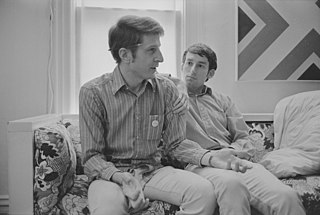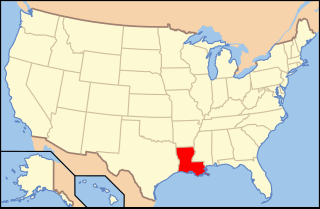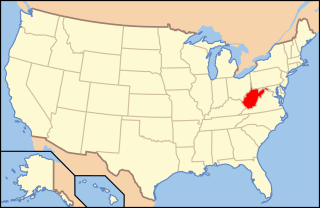Related Research Articles

Same-sex marriage was progressively introduced in several provinces and territories of Canada by court decisions beginning in 2003 before being legally recognized nationwide with the enactment of the Civil Marriage Act on July 20,2005. On June 10,2003,the Court of Appeal for Ontario issued a decision immediately legalizing same-sex marriage in Ontario,thereby becoming the first province where it was legal. The introduction of a federal gender-neutral marriage definition made Canada the fourth country in the world,and the first country outside Europe,to legally recognize same-sex marriage throughout its borders. Before the federal recognition of same-sex marriage,court decisions had already introduced it in eight out of ten provinces and one of three territories,whose residents collectively made up about 90 percent of Canada's population. More than 3,000 same-sex couples had already married in those areas before the Civil Marriage Act was passed. Most legal benefits commonly associated with marriage had been extended to cohabiting same-sex couples since 1999.

The availability of legally recognized same-sex marriage in the United States expanded from one state (Massachusetts) in 2004 to all fifty states in 2015 through various court rulings,state legislation,and direct popular votes. States each have separate marriage laws,which must adhere to rulings by the Supreme Court of the United States that recognize marriage as a fundamental right guaranteed by both the Due Process Clause and the Equal Protection Clause of the Fourteenth Amendment to the United States Constitution,as first established in the 1967 landmark civil rights case of Loving v. Virginia.

Alan Kooi Simpson is an American politician and member of the Republican Party,who represented Wyoming in the United States Senate between 1979 and 1997. Simpson was the Republican whip in the U.S. Senate from 1985 to 1995,as majority whip from 1985 to 1987 and minority whip from 1987 to 1995. He also served as co-chair of the National Commission on Fiscal Responsibility and Reform with Democratic Party co-chair Erskine Bowles of North Carolina.
Same-sex marriages are not performed in Aruba,Curaçao,or Sint Maarten,which are constituent countries of the Kingdom of the Netherlands. The islands were obliged after several court rulings to register any marriage registered in the Kingdom,but this primarily considers residency rights,and they do not have to give same-sex marriages the same legal effect as opposite-sex marriages. Marriage in the European territory of the Netherlands,as well as in the Caribbean municipalities of Bonaire,Sint Eustatius and Saba,is open to any two people irrespective of sex.

Louis Alan "Pete" Williams is a former American journalist and former government official. From 1993 to 2022,he was a television correspondent for NBC News. He served in the administration of President George H. W. Bush.

In the United States,public opinion and jurisprudence on lesbian,gay,bisexual,and transgender (LGBT) rights have developed significantly since the late 1980s. In 1961,beginning with Illinois,states began to decriminalize same-sex sexual activity,and in 2003,through Lawrence v. Texas,all remaining laws against same-sex sexual activity were invalidated. In 2004,beginning with Massachusetts,states began to offer same-sex marriage,and in 2015,through Obergefell v. Hodges,all states were required to offer it. In many states and municipalities,LGBT Americans are explicitly protected from discrimination in employment,housing,and access to public accommodations. Many LGBT rights in the United States have been established by the United States Supreme Court,which invalidated state laws banning protected class recognition based upon homosexuality,struck down sodomy laws nationwide,struck down Section 3 of the Defense of Marriage Act,made same-sex marriage legal nationwide,and prohibited employment discrimination against gay and transgender employees. LGBT-related anti-discrimination laws regarding housing and private and public services varies by state. Twenty-three states plus Washington,D.C.,Guam,and Puerto Rico outlaw discrimination based on sexual orientation,and twenty-two states plus Washington,D.C.,outlaw discrimination based on gender identity or expression. Family law also varies by state. Adoption of children by same-sex married couples is legal nationwide since Obergefell v. Hodges.

Lesbian,gay,bisexual,and transgender (LGBT) rights in Costa Rica have evolved significantly in the past decades. Same-sex sexual relations have been legal since 1971. In January 2018,the Inter-American Court of Human Rights made mandatory the approbation of same-sex marriage,adoption for same-sex couples and the removal of people's sex from all Costa Rican ID cards issued since October 2018. The Costa Rican Government announced that it would apply the rulings in the following months. In August 2018,the Costa Rican Supreme Court ruled against the country's same-sex marriage ban,and gave the Legislative Assembly 18 months to reform the law accordingly,otherwise the ban would be abolished automatically. Same-sex marriage became legal on 26 May 2020.

Lesbian,gay,bisexual,and transgender (LGBT) rights in India have evolved significantly during the 21st century. Indian LGBT citizens still face social and legal difficulties not experienced by non-LGBT people.

Lesbian,gay,bisexual,and transgender (LGBT) rights in Nepal have evolved significantly during the 21st century,though barriers to full equality still exist within the nation. In 2007,Nepal repealed the laws against gay sex and introduced several laws which explicitly protected "gender and sexual minorities". The Nepalese Constitution now recognizes LGBT rights as fundamental rights. On 28 June 2023,a single judge bench of Justice Til Prasad Shrestha issued a historic interim order directing the government to make necessary arrangements to "temporarily register" the marriages of "non-traditional couples and sexual minorities". The full bench of the Supreme Court has yet to deliver a final verdict. The first same-sex marriage of a trans woman and a cisgender gay man occurred in November 2023. Nepal will be the first least developed country and the first in South Asia to legalize same-sex marriage,and the second in Asia after Taiwan.
This is a list of notable events in the history of LGBT rights that took place in the year 2008.
The Supreme Court of Nepal has ruled in favor of same-sex marriage since 2008. On 28 June 2023,Supreme Court Justice Til Prasad Shrestha directed the government to establish a "separate register" for "sexual minorities and non-traditional couples" and to "temporarily register them". However,the Supreme Court has yet to deliver a final verdict. A full hearing is expected on 14 March 2024.

Lesbian,gay,bisexual,and transgender (LGBT) persons in Belize face legal challenges not experienced by non-LGBT citizens,although attitudes have been changing in recent years. Same-sex sexual activity was decriminalized in Belize in 2016,when the Supreme Court declared Belize's anti-sodomy law unconstitutional. Belize's constitution prohibits discrimination on the basis of sex,which Belizean courts have interpreted to include sexual orientation.

Lesbian,gay,bisexual,and transgender (LGBT) persons in the U.S. state of Wyoming may face some legal challenges not experienced by non-LGBT residents. Same-sex sexual activity has been legal in Wyoming since 1977,and same-sex marriage was legalized in the state in October 2014. Wyoming statutes do not address discrimination on the basis of sexual orientation and gender identity;however,the U.S. Supreme Court's ruling in Bostock v. Clayton County established that employment discrimination against LGBT people is illegal under federal law. In addition,the cities of Jackson,Casper,and Laramie have enacted ordinances outlawing discrimination in housing and public accommodations that cover sexual orientation and gender identity.
Same-sex marriage has been legally recognized in Wyoming since October 21,2014. The U.S. state of Wyoming had previously prohibited state recognition of same-sex marriages by statute since 1977 and had enacted a more explicit ban in 2003. An attempt to enact legislation recognizing domestic partnerships as an alternative to marriage for same-sex couples failed in 2013. On October 17,2014,a federal district court found the state's ban on same-sex marriage unconstitutional. Its ruling took effect on October 21 when state officials notified the court that they would not appeal the decision.

Lesbian,gay,bisexual,and transgender (LGBT) persons in the U.S. state of Louisiana may face some legal challenges not experienced by non-LGBT residents. Same-sex sexual activity is legal in Louisiana as a result of the US Supreme Court decision in Lawrence v. Texas,although the state legislature has not repealed its sodomy laws. Same-sex marriage has been recognized in the state since June 2015 as a result of the Supreme Court's decision in Obergefell v. Hodges.

Lesbian,gay,bisexual,and transgender (LGBT) people in the U.S. state of West Virginia face legal challenges not faced by non-LGBT persons. Same-sex sexual activity has been legal since 1976,and same-sex marriage has been recognized since October 2014. West Virginia statutes do not address discrimination on account of sexual orientation or gender identity;however,the U.S. Supreme Court's ruling in Bostock v. Clayton County established that employment discrimination against LGBT people is illegal.
This is a list of events in 2011 that affected LGBT rights.

Lesbian,gay,bisexual,and transgender (LGBT) persons in the U.S. state of Nebraska may face some legal challenges not experienced by non-LGBT residents. Same-sex sexual activity is legal in Nebraska,and same-sex marriage has been recognized since June 2015 as a result of Obergefell v. Hodges. The state prohibits discrimination on account of sexual orientation and gender identity in employment and housing following the U.S. Supreme Court's ruling in Bostock v. Clayton County and a subsequent decision of the Nebraska Equal Opportunity Commission. In addition,the state's largest city,Omaha,has enacted protections in public accommodations.

Lesbian,gay,bisexual,and transgender (LGBT) persons in the U.S. state of Oklahoma may face some legal challenges not experienced by non-LGBT residents. Same-sex sexual activity is legal in Oklahoma as a result of the U.S. Supreme Court decision in Lawrence v. Texas,although the state legislature has not repealed its sodomy laws. Both same-sex marriage and adoption by same-sex couples have been permitted since October 2014. State statutes do not prohibit discrimination based on sexual orientation or gender identity;however,the U.S. Supreme Court's ruling in Bostock v. Clayton County established that employment discrimination against LGBT people is illegal. This practice may still continue,as Oklahoma is an at-will employment state and it is still legal to fire an employee without requiring the employer to disclose any reason.
Bostock v. Clayton County,590 U.S. 644 (2020),is a landmark United States Supreme Court civil rights decision in which the Court held that Title VII of the Civil Rights Act of 1964 protects employees against discrimination because of sexuality or gender identity.
References
- ↑ "Thomas Michael Golden, Outstanding Alumnus 2015". University of Wyoming. 2015.
- 1 2 3 4 5 6 NNDB
- 1 2 3 4 5 6 Official Justice biography Archived 2013-07-27 at the Wayback Machine
- ↑ Wyoming State Archives (1991). Wyoming Blue Book (PDF). Vol. IV. p. 141.
- ↑ Dick Cheney, In My Time: A Personal and Political Memoir, New York, NY: Threshold Editions, 2011, p. 24
- ↑ Roddy Flynn, 'Recent State Court Rulings Affect LGBT Citizens in Three States', Human Rights Campaign , June 21, 2011 "Recent State Court Rulings Affect LGBT Citizens in Three States | Backstory Blog | Human Rights Campaign". Archived from the original on 2011-11-06. Retrieved 2011-11-02.
- ↑ Joan Barron, 'Wyoming Supreme Court reverses same-sex divorce ruling', in Casper Star-Tribune , June 7, 2011